DANISH-PAKISTANI BAND ON THEIR MUSICAL JOURNEY AND LATEST ALBUM
by ASJAD NAZIR
GREAT song releases find the hallowed middle ground between artistic, commercial and meaningful music.
Acclaimed Danish-Pakistani rock band Rocqawali have done that with their newly released third album Kalam, which has taken sounds rooted in over 800 years of Sufi tradition and combined them with explosive contemporary beats. By blending contrasting musical worlds and traditions, the fabulous four-member band have created tracks with universal appeal, including for those who don’t understand the lyrics and can feel the music.
Rocqawali, who have roots in Copenhagen (Denmark) and Faisalabad (Pakistan), started with a friendship between lead singer Ejaz Sher Ali and guitarist Jonas Stampe, who was a student of Ejaz’s father Ustad Sher Ali. They later connected with drummer Stephan Grabowski, who had the idea of mixing qawwali with rock ’n’ roll, and guitarist Tin Soheili to form theband. Eastern Eye caught up with the talented band members to talk about their journey so far, the new album and future plans.
What inspired the band’s name?
Qawwali and rock pivoting together is Rocqawali.
How do you look back on your journey as a band?
It has been a true adventure. We have toured in Pakistan, Russia and Scandinavia for the past six years. We have been, and still are, students of the qawwali tradition. But at the same time, we push the genre forward into new unchartered territory. So, it’s both a deeply musical, spiritual and a personal mental journey that we share. We have also reached more than 100 million people all over Asia through our extensive performances on huge TV and radio shows in Pakistan since 2014. And not many artists outside the really big-league mainstream in the west can claim that. So, this too is a true adventure for us.
What led you all towards the new album Kalam?
All bands need to record new stuff and evolve. We do too. And we found out something important for us this time: The whole idea behind Sufi is to try to get into a ‘zone’ where you get in contact with something way bigger than yourself and your ego. And that is just difficult to do with an outside producer because they will always want to go back and redo what you just played, but with all their personal instructions on top of it. And in that moment, you leave the ‘now’ zone.
What do you mean?
The zone where you don’t think, but just are in the moment and play with your heart. So our ambition this time was to perform, while being the creators and spectators at the very same time – simply to be in the ‘now’, while recording, just with the given Raga line of notes and lyrics.
Tell us about the album?
The album is an expression of who we are right now. Next year, we are hopefully somewhere else. Apart from the great qawwali masters, The Beatles are our idols. They evolved in such a way over just seven years, that even today it’s hard to understand. They were also the first real band. If we can achieve just a tiny fraction of what they did, we will be very happy. Not that we sound at all like the Beatles, mind you.
How does this compare to your previous two albums?
Our first album, we did in just two days. Our second, we did with Mark Howard, who has worked with Bob Dylan, Nusrat Fateh Ali Khan and U2, to mention just a few. But our new album is a mix of our DIY style on the first album and the more mature experiences we had with Mark on the second one. Then again, our third album here is completely something else.
Who are you hoping connects with the songs on the album?
Every man and woman with a heart and a soul. Apart from that, it would be great if some experienced promoter took us up in the UK, Australia, Canada, France and Spain.
What was the greatest challenge of putting together these songs?
Time, as always. Being four members who live in three geographical different places on two continents does provide some logistical headache now and then. So, we have quite a limited time window most of the time.
What is the next plan this year?
We hope to tour Scandinavia and perhaps, Australia. Maybe UK? Let’s see. In the fall, we will probably go to Pakistan and tour again.
How much does performing live mean to you and what has been the most memorable one?
Performing live is what this band is all about. The most memorable performance we have had up till now has to be the one at the big Coke Studio Festival in Pakistan in 2017. We hadn’t performed together after our longest break ever of a year and a half. But we still had to go on without rehearsing first, as there was no opportunity for that before the show. We even had a complete new bass player with us. Still, we went on and just took it all home in front of a 30,000 strong joyous and cheering audience.
What inspires you as a band?
Mehr Ali Sher Ali Khan, Nusrat Fateh Ali Khan, Abida Parveen, The Beatles, Led Zeppelin and Daniel Lanois. Plus, all the open hearted people who are fearless and willing to evolve.
What keeps you connected and together as a band?
Our brotherhood and our devotion to this music we all love.
Who would you as a band love to collaborate with?
Massive Attack, Robert Plant, Rahat Fateh Ali Khan, Tinariwen and Daniel Lanois. That’s at least some of them.
Why should we pick up the new album?
Despite the fact that qawwali is a nearly 1,000-year-old genre, it has stayed timeless, so is our music. Rocqawali’s music is timeless, and it does not really sound as anything else out there. And because this music, our music, may touch your soul in a new way.
Visit www.rocqawali.com





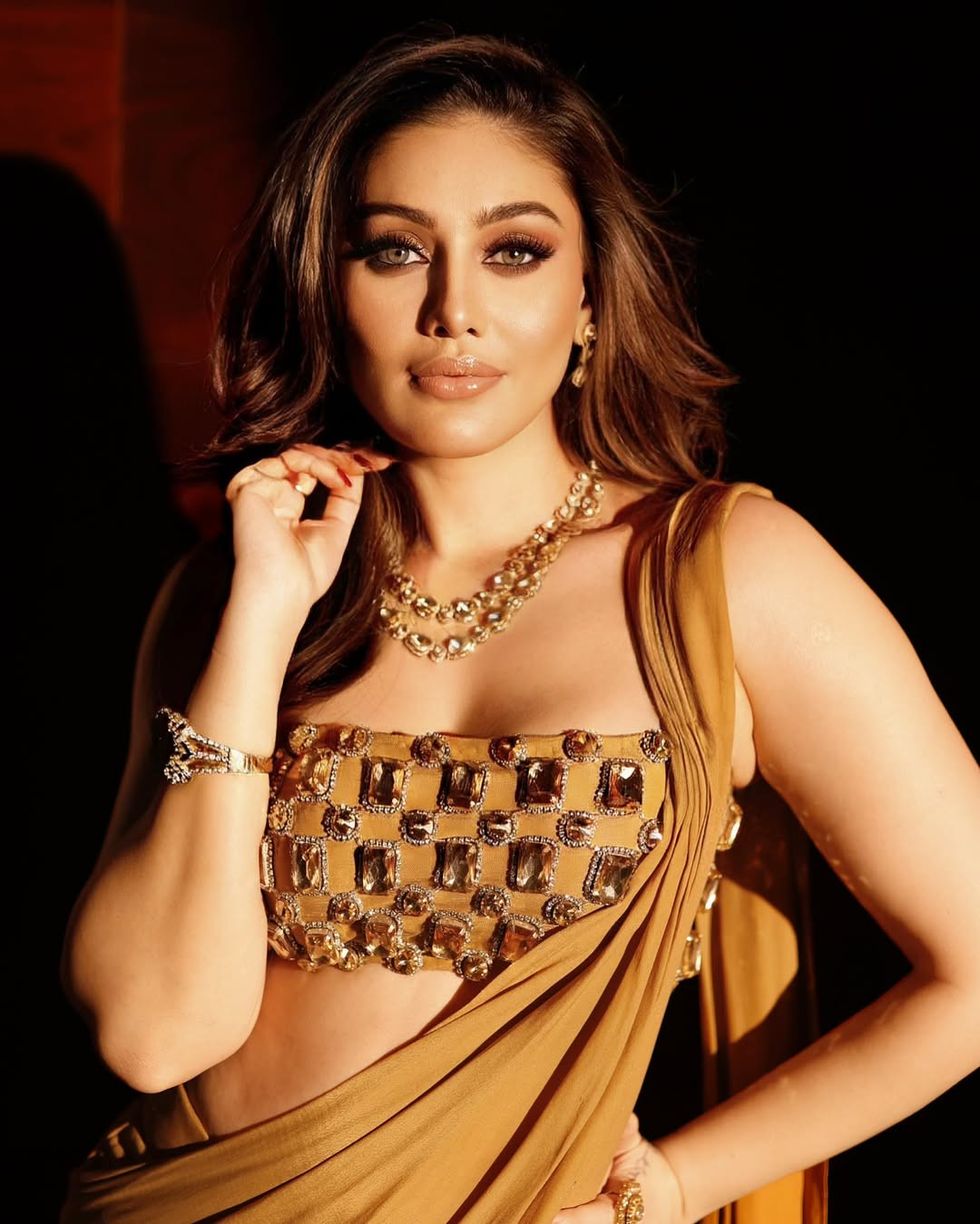 Shefali Jariwala dies at 42 after cardiac arrest, industry mourns Kaanta Laga starInstagram/
Shefali Jariwala dies at 42 after cardiac arrest, industry mourns Kaanta Laga starInstagram/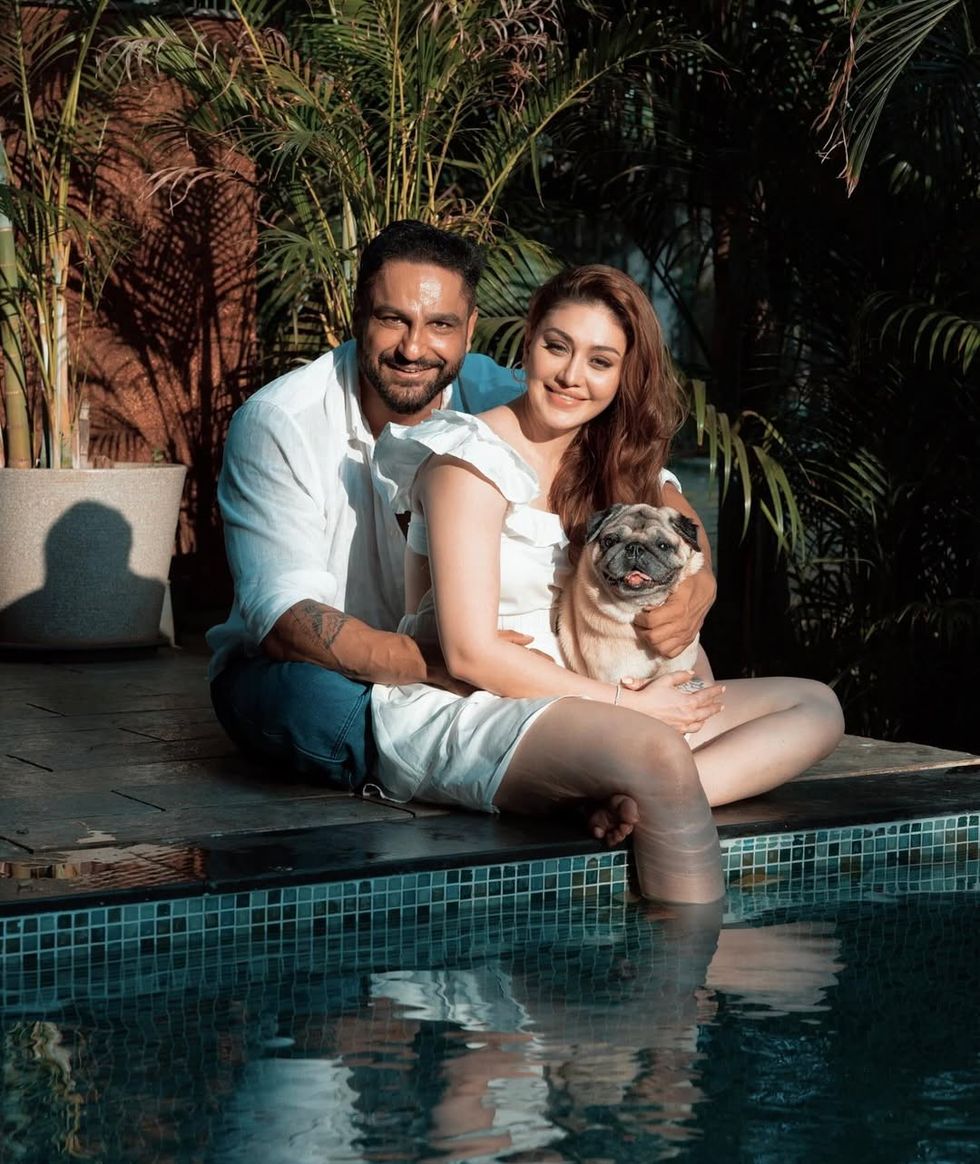 Shefali Jariwala was married to actor Parag Tyagi,Instagram/
Shefali Jariwala was married to actor Parag Tyagi,Instagram/








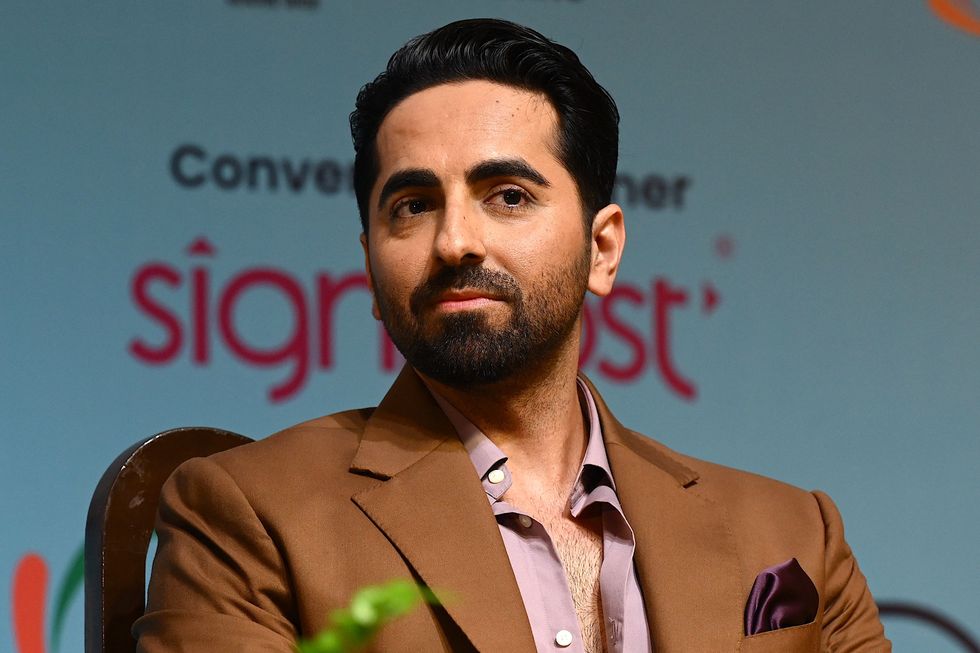 Ayushmann Khurrana attends an event at the FICCI Frames 2024 Getty Images
Ayushmann Khurrana attends an event at the FICCI Frames 2024 Getty Images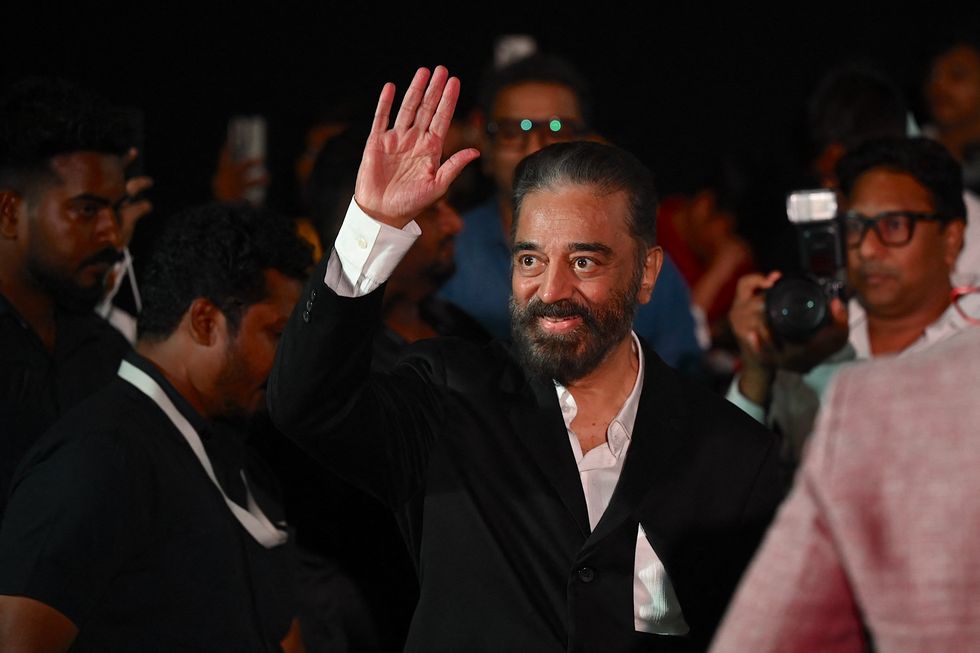 Kamal Haasan waves as he attends a press conference for 'Thug Life'Getty Images
Kamal Haasan waves as he attends a press conference for 'Thug Life'Getty Images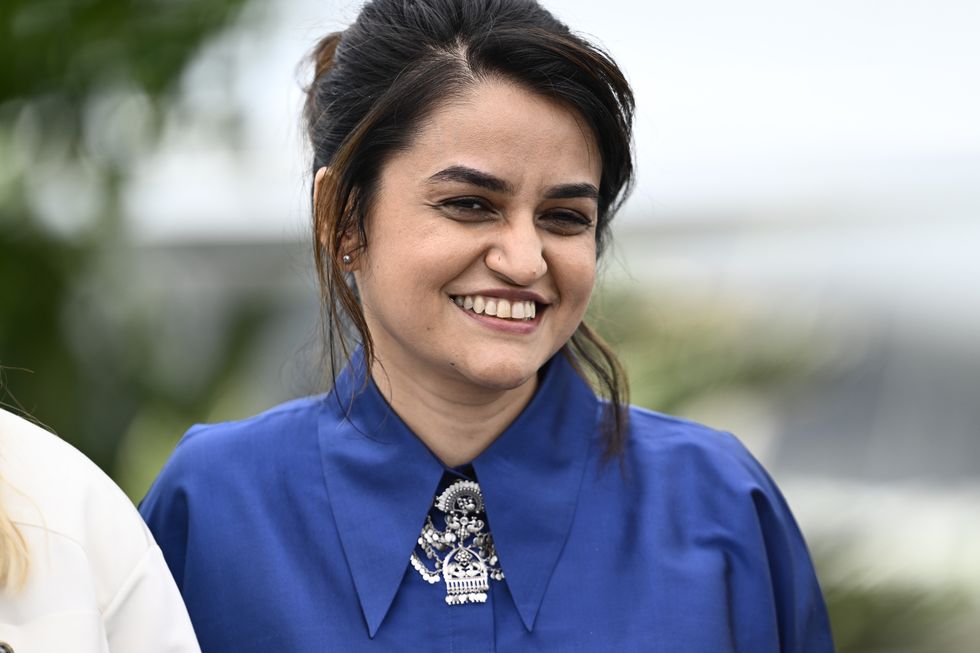 Payal Kapadia smiles during the Jury photocall at the 78th annual Cannes Film FestivalGetty Images
Payal Kapadia smiles during the Jury photocall at the 78th annual Cannes Film FestivalGetty Images
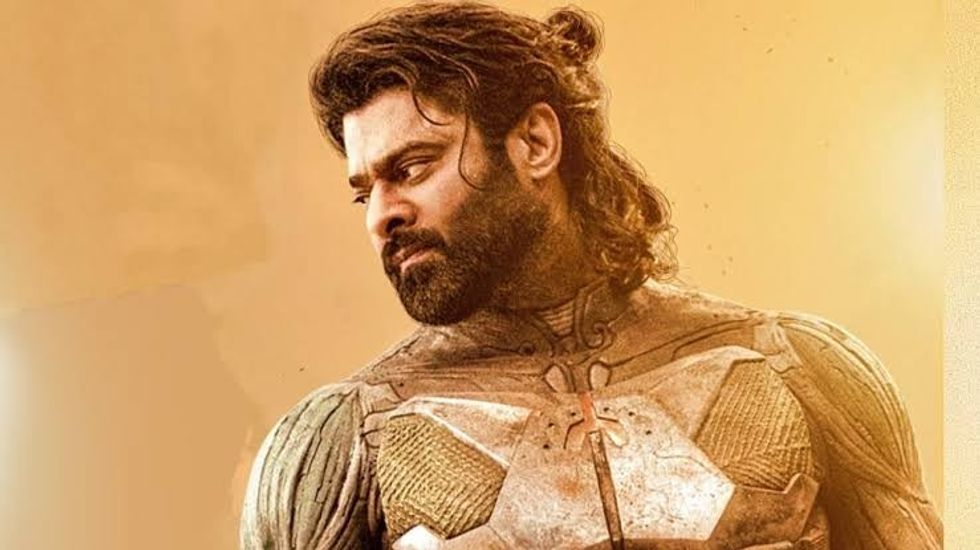 Prabhas in a still from Kalki 2898 AD which completed one yeargetty images
Prabhas in a still from Kalki 2898 AD which completed one yeargetty images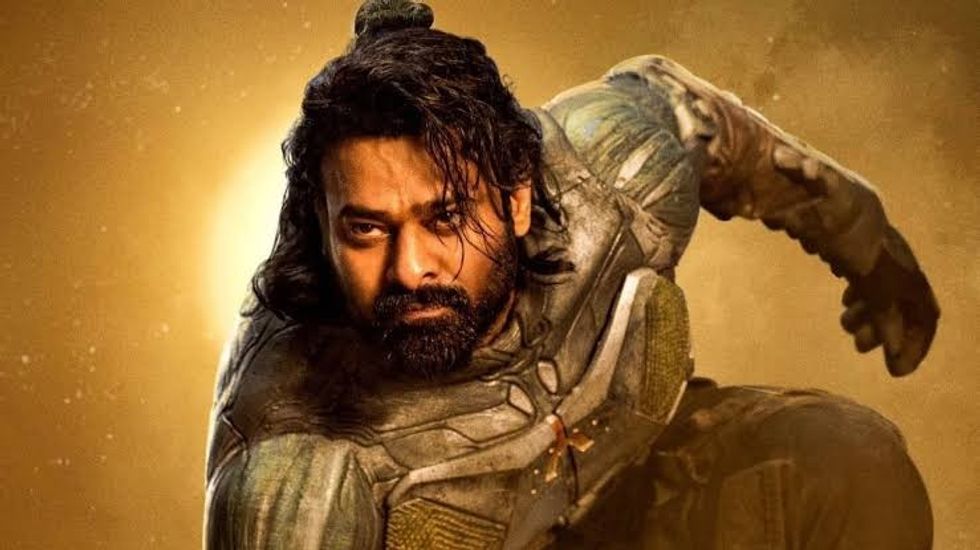 Kalki 2898 AD became one of the top three biggest openers in Indian cinemagetty images
Kalki 2898 AD became one of the top three biggest openers in Indian cinemagetty images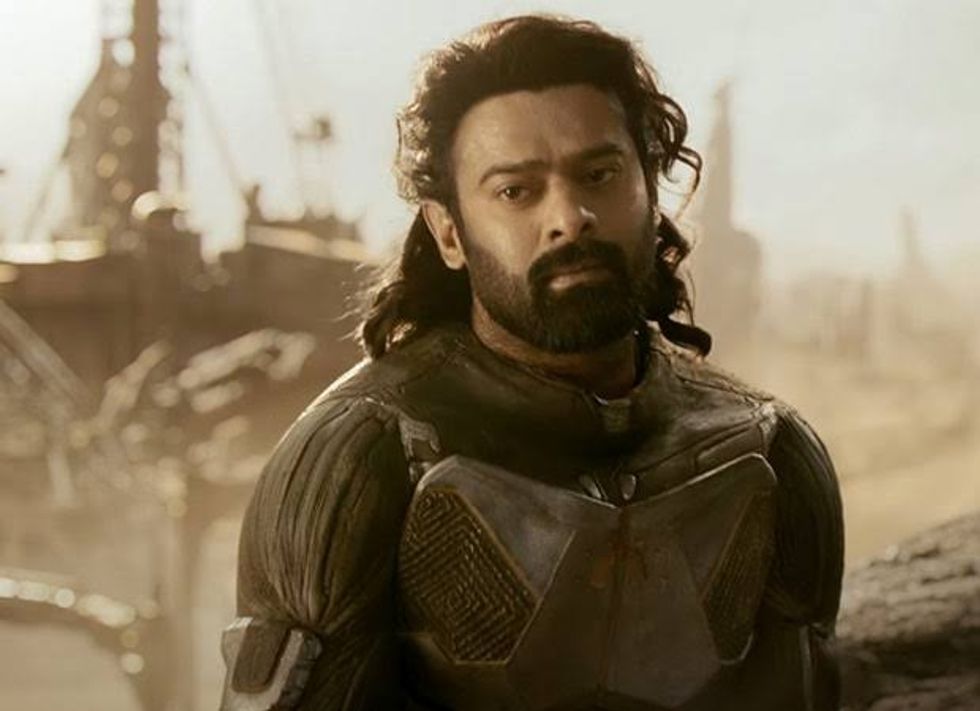 Kalki 2898 AD brought together sci-fi and mythology in a first-of-its-kind Indian filmgetty images
Kalki 2898 AD brought together sci-fi and mythology in a first-of-its-kind Indian filmgetty images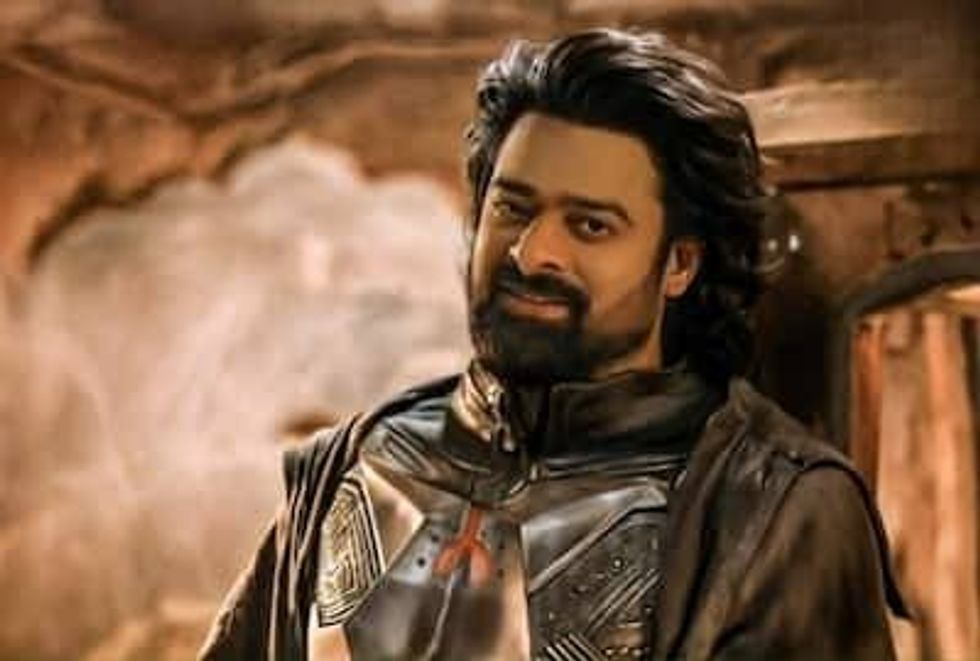 Prabhas plays the futuristic warrior Bhairava in Kalki 2898 AD getty images
Prabhas plays the futuristic warrior Bhairava in Kalki 2898 AD getty images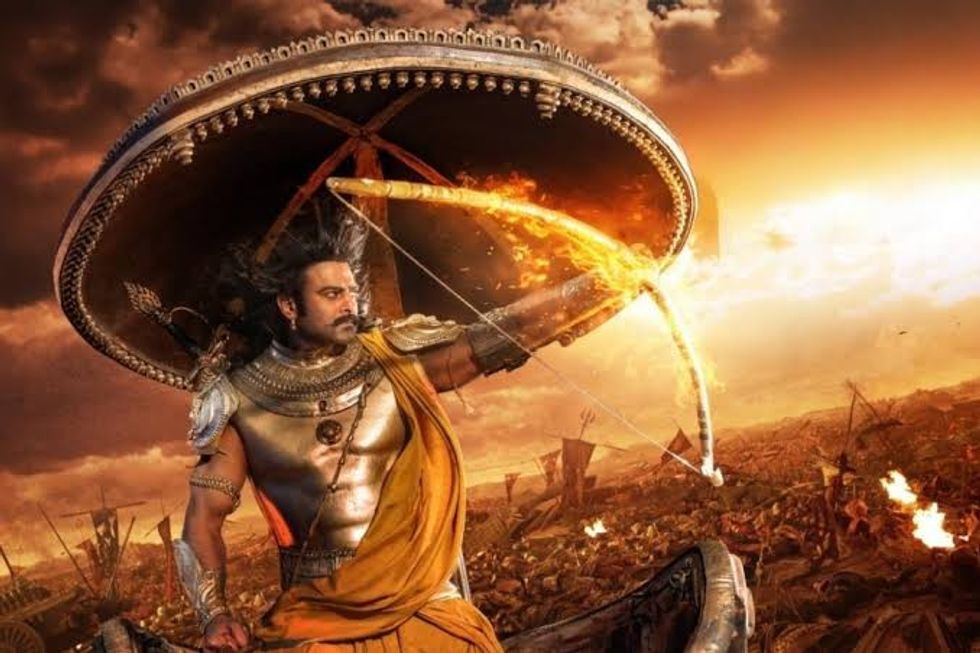 Prabhas in action during a high-intensity sequence from Kalki 2898 ADgetty images
Prabhas in action during a high-intensity sequence from Kalki 2898 ADgetty images
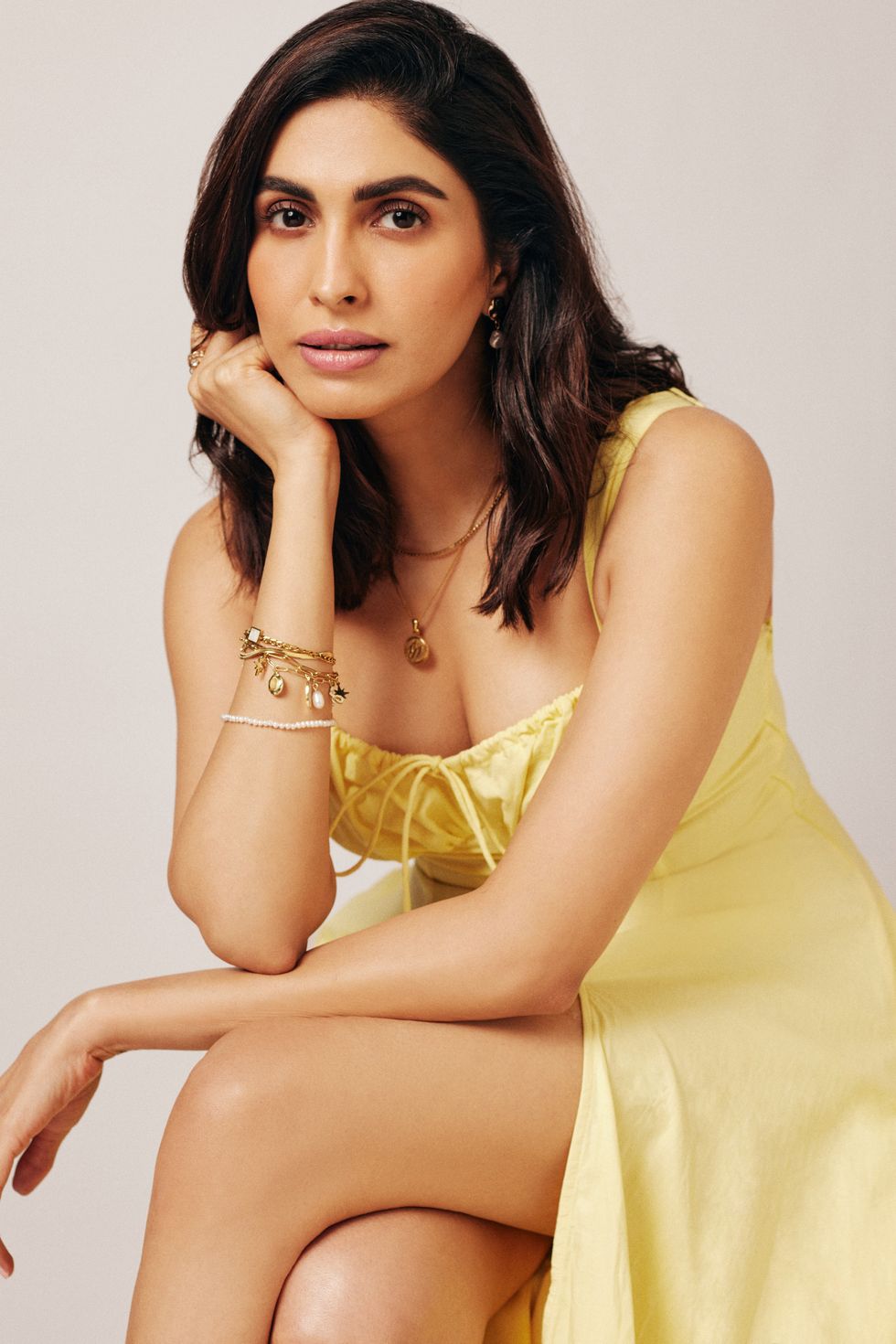 Anusha Mani
Anusha Mani
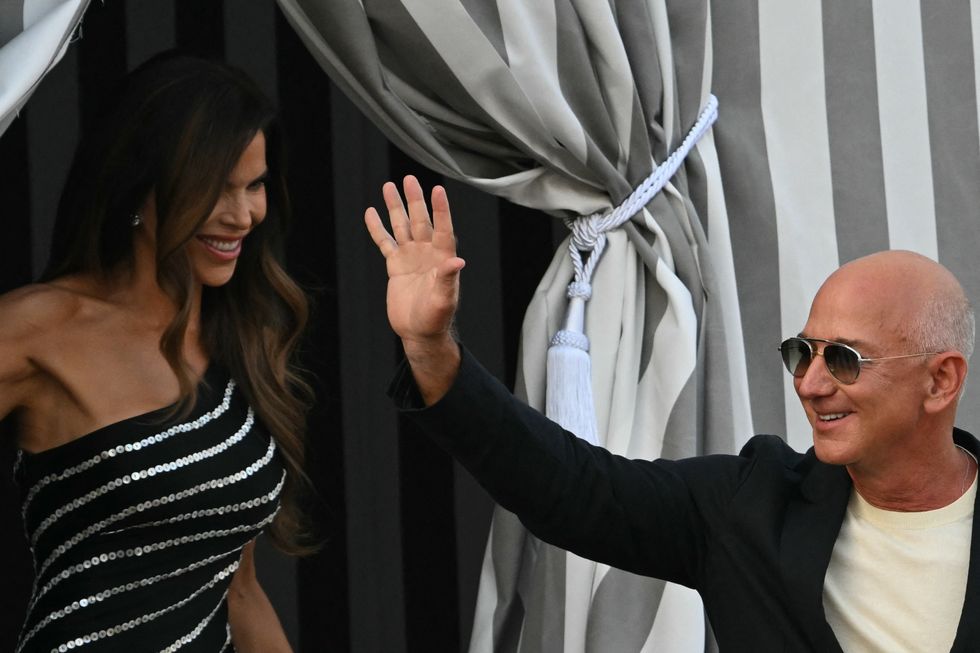 Lauren Sanchez and Jeff Bezos leave the Aman Hotel in Venice ahead of their wedding Getty Images
Lauren Sanchez and Jeff Bezos leave the Aman Hotel in Venice ahead of their wedding Getty Images 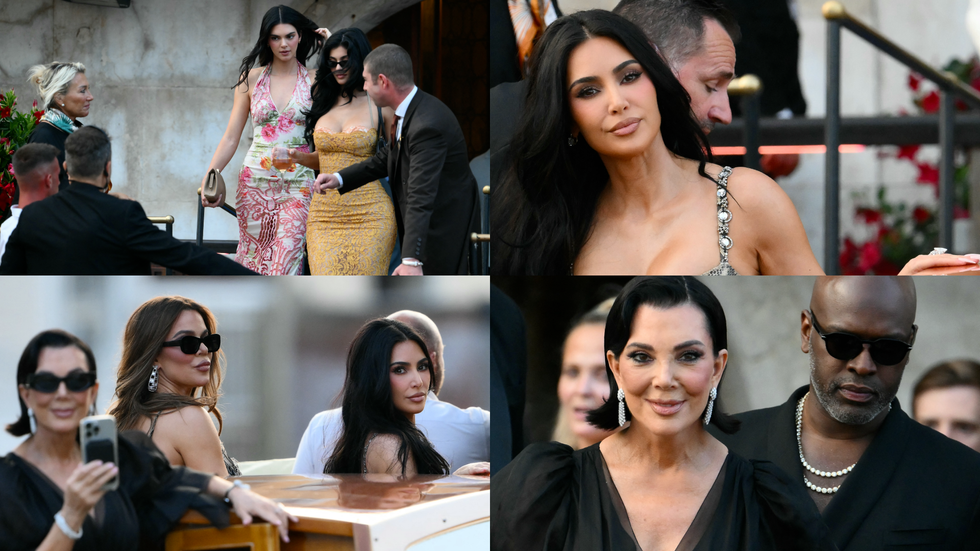 Kardashians seen boarding a boat ahead of the evening celebrations in VeniceGetty Images
Kardashians seen boarding a boat ahead of the evening celebrations in VeniceGetty Images 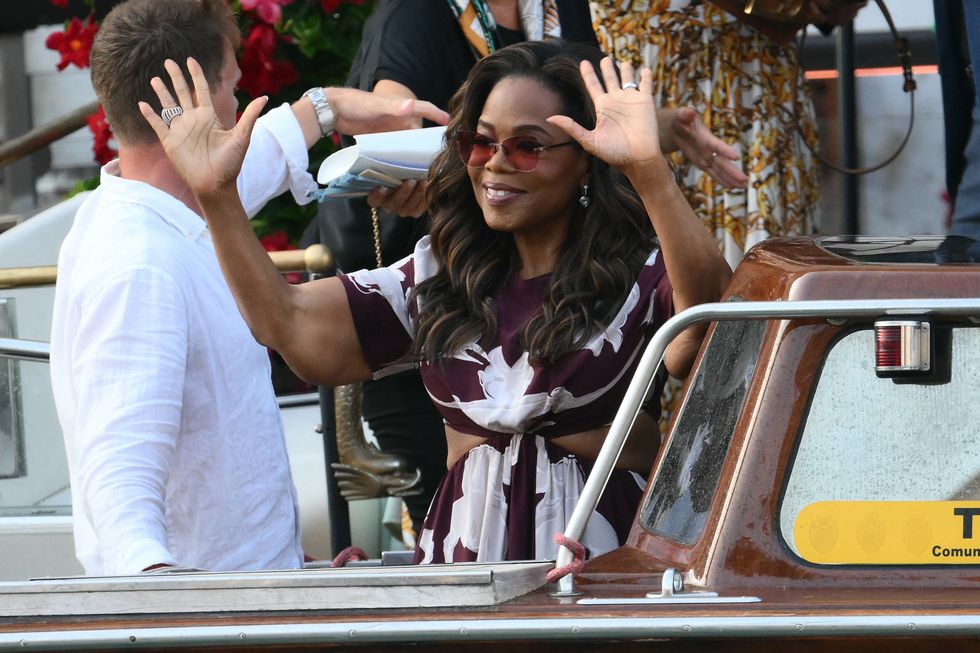 Oprah Winfrey wave to fans while heading to the welcome event Getty Images
Oprah Winfrey wave to fans while heading to the welcome event Getty Images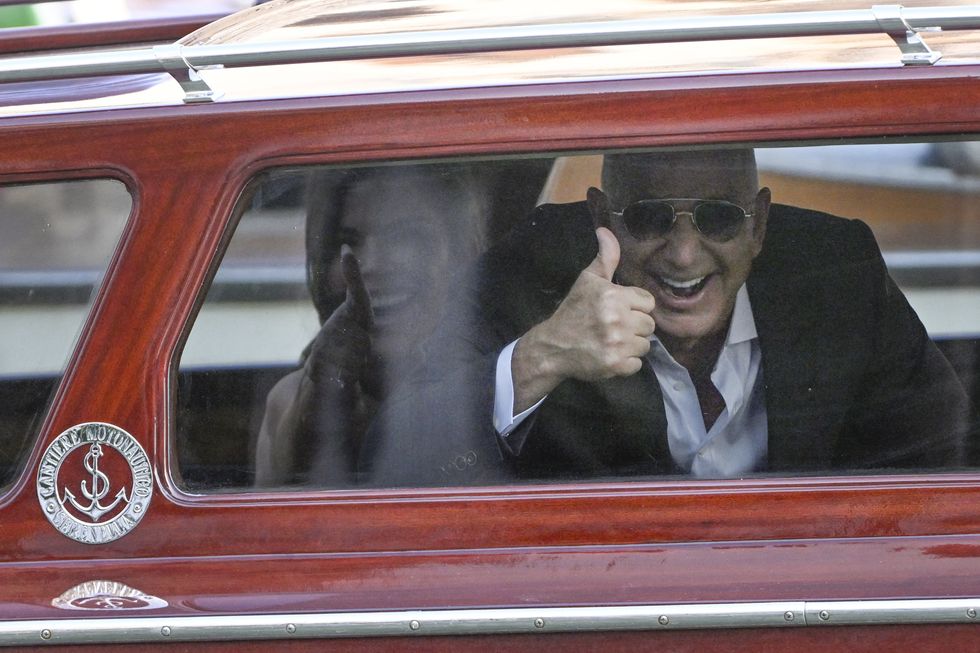 Jeff Bezos and Lauren Sanchez gesture in direction of Bezos' lookalike from the taxi boatGetty Images
Jeff Bezos and Lauren Sanchez gesture in direction of Bezos' lookalike from the taxi boatGetty Images